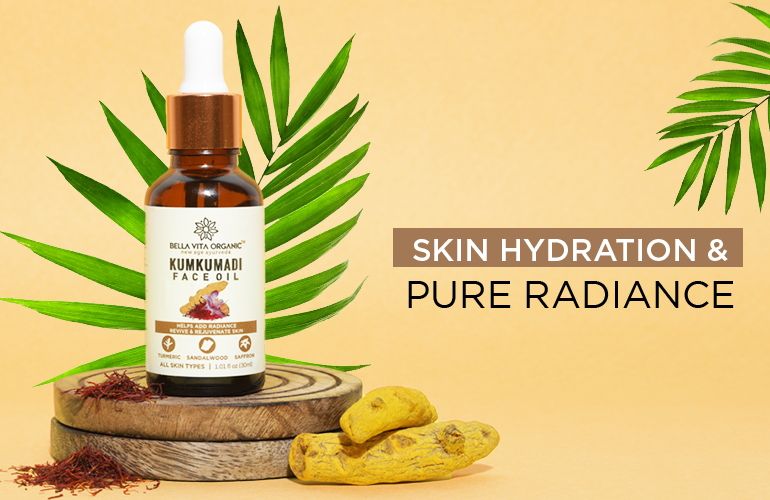Face Oil 101: Which One is Perfect for Your Skin?

Hey there! Are you tired of searching high and low for the perfect face oil 101 that will work wonders for your skin? Well, look no further because we’ve got you covered! In this blog post, we will delve into the world of face oils and guide you towards finding the one that is tailored to your unique skin needs. So sit back, relax, and get ready to discover the wonders of face oils with us!
Discover the must-have face oil 101 that are flying off the shelves!
What is Face Oil?
When it comes to skincare, face oils have gained popularity for their ability to nourish and hydrate the skin. But what exactly is face oil? In this section, we will delve into the world of face oils and demystify common misconceptions surrounding their use.
Understanding Face Oils
Face oils are typically plant-based oils that are designed to be applied directly to the skin. These oils are rich in essential fatty acids, vitamins, and antioxidants, which provide numerous benefits for your skin’s health and appearance. Contrary to popular belief, face oils are suitable for all skin types, including oily and acne-prone skin.
How Do Face Oils Work?
Face oils work by forming a protective layer on the skin’s surface, helping to lock in moisture and prevent water loss. They also have the ability to penetrate the deeper layers of the skin, delivering essential nutrients that promote a healthy complexion. Here’s how face oils work to benefit your skin:
1. Hydration Boost
- Face oils help to restore and maintain your skin’s natural moisture barrier.
- They can be used as a standalone moisturizer or added to your existing skincare routine for an extra hydration boost.
2. Nourishing Nutrients
- Packed with vitamins and antioxidants, face oils provide essential nutrients that nourish the skin.
- These nutrients help to combat free radicals, reduce inflammation, and enhance the overall health of your skin.
3. Balance and regulation
- Contrary to popular belief, face oils can actually help regulate sebum production, making them suitable for oily and acne-prone skin.
- The right face oil can help balance oil production and prevent breakouts, leading to a clearer complexion.
Common Myths Debunked
Now that we’ve explored the benefits of face oils, let’s debunk some common myths that might be holding you back from incorporating them into your skincare routine:
Myth 1: Face oils make your skin oily
- Face oils are formulated to be lightweight and non-greasy, absorbing quickly into the skin.
- When used correctly, face oils can actually regulate oil production, preventing excessive sebum accumulation.
Myth 2: Face oils clog pores and cause breakouts
- Face oils with non-comedogenic ingredients will not clog your pores.
- In fact, some face oils like jojoba oil have antibacterial properties that can help fight acne-causing bacteria.
Myth 3: Face oils are only suitable for dry skin
- Face oils can benefit all skin types, including oily and combination skin.
- By providing hydration and balance, they can actually improve the appearance and texture of oily skin.
Types of Face Oils
Face oils are a rising trend in the skincare industry, and for good reason. They offer a natural and effective way to nourish and hydrate your skin, leaving it looking youthful and radiant. In this blog post, we will explore the wide variety of face oils available in the market, focusing on argan oil, jojoba oil, and rosehip oil. We will discuss their individual properties, benefits, and suitability for different skin types and concerns.
Argan Oil
Properties
- Rich in vitamin E, antioxidants, and essential fatty acids
- Lightweight and absorbs easily into the skin
- Non-greasy and doesn’t clog pores
Benefits
- Deeply moisturizes and hydrates the skin
- Increases elasticity and firmness
- Fights signs of aging, such as fine lines and wrinkles
- Soothes inflammation and redness
- Balances oil production, making it suitable for both dry and oily skin
Suitable for
- Aging skin
- Dry and dehydrated skin
- Acne-prone skin (due to its non-comedogenic properties)
Jojoba Oil
Properties
- Similar molecular structure to human sebum
- Light, non-greasy, and easily absorbed
- Rich in vitamins, minerals, and antioxidants
Benefits
- Moisturizes and nourishes the skin without leaving a heavy residue
- Balances sebum production, reducing oiliness and preventing clogged pores
- Soothes and calms irritated skin, including conditions like eczema and dermatitis
- Helps to fade scars and blemishes
- Provides a protective barrier against environmental pollutants
Suitable for
- All skin types, including sensitive skin
- Oily and acne-prone skin (helps to regulate sebum production)
- Dry and mature skin (restores moisture balance)
Rosehip Oil
Properties
- Packed with essential fatty acids, vitamins A and C, and antioxidants
- Absorbs quickly without leaving a residue
- Highly moisturizing and nourishing
Benefits
- Regenerates and repairs damaged skin
- Fades scars, hyperpigmentation, and stretch marks
- Boosts collagen production, improving skin elasticity
- Brightens the complexion and evens out skin tone
- Protects against UV damage
Suitable for
- Aging skin
- Dull and uneven skin tone
- Dry and sensitive skin
- Scarring and hyperpigmentation
Choosing the Right Face Oil for You
When selecting a face oil, it’s essential to consider your individual skin type and concerns. Here are a few key points to keep in mind:
- Argan oil is a versatile option that works well for various skin types, making it a safe choice if you are unsure.
- Jojoba oil is an excellent option for those with sensitive skin or oily skin, as it helps balance sebum production.
- Rosehip oil is best suited for aging skin, uneven skin tone, and those looking to diminish scars or hyperpigmentation.
Remember to perform a patch test before incorporating any new product into your skincare routine, especially if you have sensitive skin or allergies.
Choosing the Right Face Oil for Your Skin
Your ultimate guide to finding the perfect face oil for your skin type and concerns
Finding the right face oil for your skin can be a daunting task, especially with the myriad of options available on the market. However, fear not! In this guide, we will walk you through the process of selecting the perfect face oil for your specific skin type and concerns. With our expert tips and suggestions, you’ll be able to achieve a healthy, radiant complexion in no time.
Identifying Your Skin Type
Before diving into the world of face oils, it’s crucial to understand your specific skin type. This will help you choose a face oil that addresses your skin’s unique needs. Here are some key indicators to help you identify your skin type:
- Oily Skin: If your skin tends to be shiny, especially in the T-zone, and is prone to breakouts, you likely have oily skin.
- Dry Skin: Dry skin often feels tight, rough, and may have flakes. It lacks natural oils and can be sensitive to certain products.
- Sensitive Skin: Sensitive skin is easily irritated and reactive to various environmental factors or skincare products. It may appear red and may be prone to allergies.
- Acne-Prone Skin: Skin with acne tends to have regular breakouts, blackheads, and whiteheads. It can also be oily in some areas.
Face Oils for Different Skin Types
Now that you’ve identified your skin type, let’s explore the best face oils for each specific category. Remember, while these recommendations are generally suitable for the stated skin types, individual preferences may still vary. Here are some face oils to consider:
For Oily Skin
- Jojoba Oil: Helps to balance sebum production without clogging pores.
- Grapeseed Oil: Lightweight and easily absorbed, it aids in regulating oil production.
- Tea Tree Oil: Known for its anti-inflammatory and antibacterial properties, it can reduce breakouts.
For Dry Skin
- Argan Oil: Rich in essential fatty acids, it nourishes and moisturizes dry skin.
- Avocado Oil: A deeply hydrating oil that soothes and replenishes dry, flaky skin.
- Rosehip Oil: Excellent for dry skin due to its hydrating and regenerative properties.
For Sensitive Skin
- Chamomile Oil: Calms and soothes sensitive skin, reducing inflammation.
- Calendula Oil: A gentle oil that moisturizes and helps calm irritated skin.
- Squalane Oil: Non-irritating and lightweight, it helps restore the skin’s barrier function.
For Acne-Prone Skin
- Rosemary Oil: Contains powerful antimicrobial properties, helping to combat acne-causing bacteria.
- Evening Primrose Oil: Helps regulate oil production and reduce inflammation.
- Grapeseed Oil: Lightweight yet moisturizing, it won’t clog pores or exacerbate acne.
Final Thoughts
Choosing the right face oil for your skin type and concerns is essential for maintaining a healthy complexion. By understanding your skin type and following our recommendations, you can benefit from the unique properties of face oils to achieve the desired results. Remember, consistency is key when adding face oils to your skincare routine. So go ahead, find your perfect match, and embrace the nourishing power of face oils for radiant, glowing skin.
Disclaimer: While face oils can provide numerous benefits for various skin types, individual skin sensitivities and reactions may occur. It is always recommended to patch test new products and consult with a dermatologist if you have any concerns or persistent skin issues.
Factors to Consider When Choosing a Face Oil
Choosing the right face oil for your skincare routine can be daunting with the numerous options available in the market. To help you make an informed decision, we’ve put together this guide to highlight some important factors to consider. From the ingredients to the texture and scent, we’ll break it down to ensure you find the perfect face oil for your needs.
Ingredients Matter
One of the most crucial factors to consider when selecting a face oil is the ingredients. Here are some key points to keep in mind:
- Natural and Organic: Opt for face oils that are made from natural and organic ingredients. These oils are derived from plants and botanicals without the use of harmful chemicals, ensuring a gentle and safe experience for your skin.
- Suitable for Your Skin Type: Consider your skin type when choosing a face oil. Certain ingredients, like jojoba oil for oily skin or rosehip oil for dry skin, can provide targeted benefits and address specific concerns. Look for formulas that cater to your skin’s unique needs.
- Free from Harsh Additives: Avoid face oils that contain synthetic fragrances, parabens, sulfates, and other potentially irritating additives. The absence of such ingredients ensures a more natural and skin-friendly product.
Texture and Absorption
The texture of a face oil plays a significant role in how it feels on your skin and how it absorbs. Some points to note:
- Lightweight and Non-Greasy: A lightweight face oil is often preferred as it absorbs quickly and doesn’t leave a greasy residue. This allows you to use it during the day without interfering with your makeup.
- Silky and Smooth: Look for a face oil with a silky and smooth texture that glides effortlessly onto the skin. This ensures a comfortable application and doesn’t feel heavy or sticky.
Scented or Unscented
The scent of a face oil can enhance your skincare experience. Consider the following:
- Natural Fragrance: Some face oils have a pleasant natural scent derived from their ingredients. If you enjoy aromatherapy or prefer a subtle fragrance, these oils can offer a spa-like experience.
- Unscented Options: If you have sensitive skin or prefer fragrance-free products, opt for unscented face oils. These are designed to minimize any potential irritation and are perfect for those with fragrance sensitivities.
Additional Features
While the main factors mentioned above are crucial, considering additional features can align your choice of face oil with your personal values:
- Cruelty-Free: Look for face oils that are cruelty-free, meaning they haven’t been tested on animals. Supporting brands that prioritize ethical practices is an excellent way to make a positive impact.
- Sustainability: Consider face oils that come in recyclable or biodegradable packaging. Choosing sustainable options helps reduce your carbon footprint and contributes to a greener future.
Key Points Summarized
To simplify the information and help you make a quick decision, here are the key points and benefits to keep in mind:
- Opt for face oils made from natural and organic ingredients for a gentle and safe experience.
- Choose face oils suitable for your skin type to address specific concerns effectively.
- Look for lightweight and non-greasy textures that absorb quickly into the skin.
- Consider natural fragrance for an enhanced skincare experience or opt for unscented options for fragrance-free solutions.
- Support brands that are cruelty-free and prioritize ethical practices.
- Contribute to sustainability by choosing face oils with recyclable or biodegradable packaging.
When considering these factors, you’ll be well on your way to finding the perfect face oil that meets your needs and aligns with your values. Happy oil hunting!
Discover your perfect match and elevate your skincare routine with the ideal face oil for your skin
In conclusion, discovering the ideal face oil for your skin is the key to unlocking a radiant complexion. By understanding your skin type, concerns, and personal preferences, you can make an informed decision. Remember, consulting with a skincare professional will provide you with personalized recommendations. So, seize this opportunity to nourish your skin with the perfect face oil and let your natural beauty shine through.







